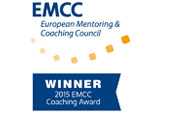13th January 2018
 Understanding our PPP
Understanding our PPP
Why we do, What we do, How we do it
A few years ago I trained as a supervisor at Oxford Brookes University. One of the toughest, most challenging and ultimately rewarding assignments was to explain our model. We needed to demonstrate that we understood why we worked the way we did, with congruence between our personal philosophy – our values, beliefs and assumptions, what we saw as the purpose for supervision – the desired outcomes, and therefore the processes – techniques, tools and methods, we used when supervising. It was a time for burning the midnight oil and much searching of the soul, and 78 books and articles later along with hours of reflection (all engraved indelibly on my memory!) I began to understand how it all fitted together for me.
The same questions for coaches also apply to each of us whatever our role. Take leadership. As a leader what do we believe about our fellow human beings? We might get ideas from considering the books we like to read, the films we watch, the newspapers we read. Then what do we consider the purpose of leadership is – for example is it to ensure we are as efficient as possible? Is it to provide opportunities for people to flourish? Is it to ensure we create new products for the market? Of course we may have more than one purpose. Then finally, given the previous responses, how do we lead, and does this fit with what we are aiming for?
We are going back to fundamentals to answer the question: ‘Are we living our values with congruence and coherence’? Whether or not we acknowledge it, we all have underpinning beliefs, assumptions, values and views about other human beings; how do we bring those into our work – and are we aware that we do and how it affects us and the people around us?
For more on the subject, this topic forms the second chapter, PPP, writtten by Peter Jackson and Tatiana Bachkirova in a book to be published later in 2018. It is:
Turner, E. and Palmer, S. (2018). (Editors). The Heart of Coaching Supervision: Working with Reflection and Self-Care. Abingdon: Routledge.


 Understanding our PPP
Understanding our PPP 












